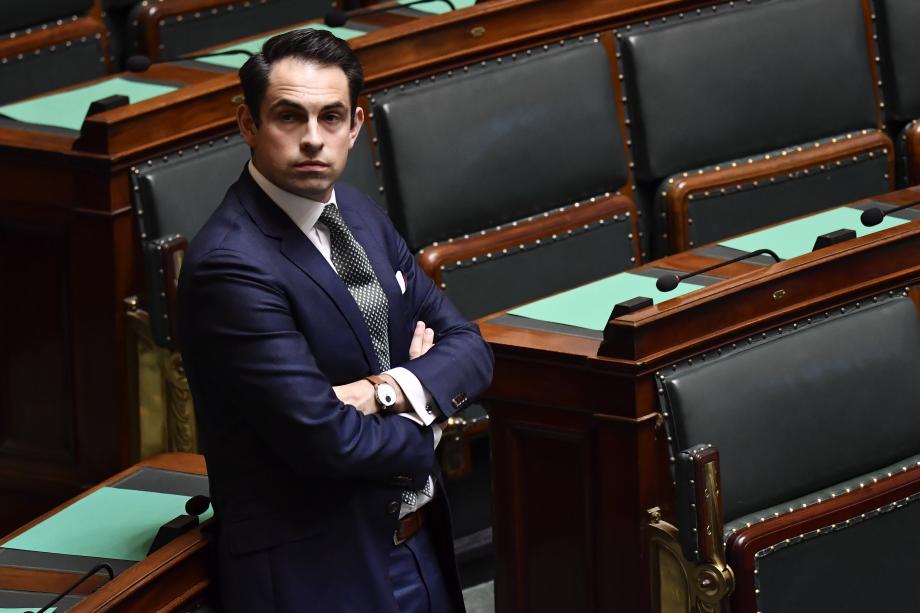Should the Flemish far-right and separatist Vlaams Belang party come to power in 2024, it will declare Flanders' independence, but not before seeking a compromise with the French-speaking population, the party's leader Tom Van Grieken said.
The issue of splitting Belgium into Flanders and Wallonia is on the table again as Van Grieken stated in front of a Flemish-nationalist audience at a sponsor dinner of Flemish nationalist website Doorbraak.be on Tuesday evening, during which he discussed Flemish sovereignty in 2029, reports De Standaard.
"If I had a Flemish nationalist majority, I would make a unilateral declaration of sovereignty from the Flemish Parliament, but I will let it take effect in 2029," he said.
"Then we say to the French speakers: either we sit down at the table to talk, or we will go our own way in 2029. And if it comes to a compromise, then as a Flemish nationalist, I will take it."
According to the newspaper, the far-right leader mainly tried to market himself as a credible alternative for an audience mostly supporting the other Flemish nationalist party, the rightwing N-VA.
The far-right in Flanders
Vlaams Belang is a far-right party that strongly pushes an anti-immigrant agenda. During Belgium's federal elections in 2019, the party won 18.5% of the votes – jumping up 12.6% from its last election results in 2014.
Previously isolated by the political cordon sanitaire — the refusal of all political parties in Belgium to cooperate with another political party — Vlaams Belang came second to N-VA, which got 24.8%.
The cordon sanitaire was imposed against Vlaams Belang (then still named Vlaams Blok) in 1989, and meant that the party was effectively blocked from entering any level of government, as all other political parties agreed not to form a coalition with them, citing the party’s racist rhetoric.
Related News
- 'Let’s try to have a Belgium that functions with four regions'
- How the Flemish far-right uses social media
In 2004, the party rebranded itself as Vlaams Belang after it was convicted of breaching the anti-racism law, but the political cordon sanitaire remains in place – meaning it is still excluded from any type of government formation talks.
As Belgium's other political parties excluded both separatist parties (Vlaams Belang and N-VA) from their formation discussions in 2019, it took a long time for Belgium to form its Federal Government, which now consists of a whopping seven-party coalition ranging from greens to conservatives.
Could Belgium split up?
Still, forces wanting to tear the country apart persist, as nearly one in four Belgians – mostly in Flanders – would be in favour of splitting the country. In practice, however, many questions remain as to how realistic it is, how public debt would be divided and what to do about the mostly Francophone Brussels-Capital Region surrounded by Flanders should the country break apart.
The issue may become a hot-button topic again depending on the election results in 2024, as the prosperous northern part of the country could lurch further to the right if Vlaams Belang grows and becomes more insistent on its separatist demands.
For now, Van Grieken is aware of his party's limitations. "Vlaams Belang must evolve into a nationalistic policy party," he said. "We should not only say that as a promotional talk, but we should also mean it. That is a point of self-criticism. I also think that our party should become a bit more mature."
In any case, his party would need "50% of the Flemish Parliament to be able to make a declaration of sovereignty," he added. "I have had many conversations, but one conversation is still not possible and is being refused in every possible way: the conversation with that other Flemish-national party chairman, N-VA's Bart De Wever."

